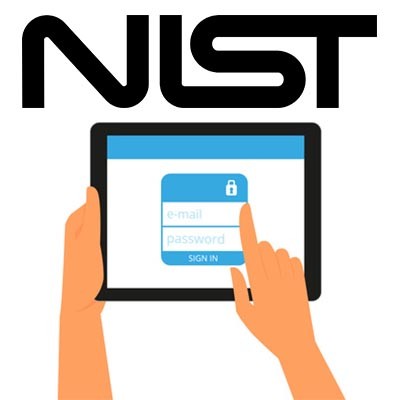The most successful businesses are those that are always seeking to improve what they offer—oftentimes, taking a successful element and simply making it more efficient to deliver. In the past, this basically meant that businesses needed to have their employees work more quickly. However, today’s improved technology and the automation that it makes possible have delivered a much more consistent option.
BEI Blog
A business’ data needs to be considered a priority, which means that its protection should be prioritized accordingly. One facet of doing so is maintaining a backup with a strategy in compliance to best practices. To accomplish this, your backup should feature something that isn’t often considered a benefit: redundancy.
We talk a lot—a lot—about “best practices” regarding IT and technology. However, it has come to our attention that not a lot of people necessarily know what this means, especially when it comes from an MSP. We wanted to take a few moments and go over what best practices are, and why it is important that they have a presence in your business’ IT.
There is no denying that “collaboration” is one of the biggest business buzzwords right now… and for good reason, since it is a prerequisite for any business seeking to compete in its market. Let’s take a different tack than we usually would and consider some of the non-technical elements your business needs to incorporate to encourage collaborative work.
Collaboration is widely accepted as a “must-have” in the current, connected business environment… at least, for any organization that wants to remain competitive. Let’s take a few moments and consider what needs to be present for any collaborative efforts to be successful, and the skills you should work to develop in your team members to enhance their capacity for cooperation.
Data security isn’t a matter to be taken lightly, as too many businesses have found out the hard way. Unfortunately, there are far too many simple ways to correct common security issues - enough that it’s foolish not to do so. We’ll review a few ways to fix security issues, after discussing one of, if not the, most egregious security failings in modern history.
How much does your business rely on technology to keep your organization running forward? As business technology becomes more complex, it’s becoming increasingly popular for organizations to have their own internal IT departments to manage and maintain it. Yet, small businesses don’t often have the necessary funds for such a feat. How can your company afford quality IT service? You can start by pursuing managed IT solutions from a managed service provider.
Many states’ stay-at-home orders that are/were designed to mitigate the spread of the COVID-19 virus are now lapsing all over the U.S. As a result, business owners are re-opening their doors to a great deal of uncertainty. We have put together this guide to help the business owner understand that, even though you’ve finally been given the go-ahead, you have a responsibility to keep your staff and customers safe.
Tomorrow is World Backup Day, which--considering the current business climate as the coronavirus pandemic rages on--seems only too appropriate. Let’s discuss why times like these make it only too clear how critical a business continuity strategy is, especially when supported by the right backup solution.
Data recovery is more a strategy than a solution. You first need to keep a regular backup to ensure that you aren’t losing large chunks of productivity. Then, you need to have a strategy to efficiently recover data if it is corrupted, lost, or stolen. Today, we’ll talk a little bit about some situations that businesses run into that would spark data recovery.
While most businesses need the same basic technology to support their operations, some industries have additional, more specific needs that require a more specialized tool to accomplish. As we leave this series behind, let’s briefly consider how a managed service provider can be a valuable resource for a business operating in one of these industries.
Modern businesses can now make use of increasingly powerful technology solutions… as long as they have a means of obtaining and incorporating these solutions into their operations. The services that a managed service provider can deliver include procurement assistance. To wrap up our series on the value that managed services can provide, let’s discuss this aspect.
Your business’ data is a key component to its success, and with a managed service provider on your side, it becomes even more beneficial for you to put to use. As we carry on with our series describing the value of a relationship with a managed service provider, we’ll look at a few ways that your business can benefit from the data services that this relationship can provide.
Every so often, you may encounter a need for experience that nobody you currently employ actually has. While you could hire an employee with the desired skills, there’s no guarantee that you could find one in a timely fashion - or that they’d be a good fit. So, for the third part of our series on a managed service provider’s added value, we’re examining their consulting services.
One of the most crucial resources in any business are its human ones - the employees that keep the wheels turning, day in and day out. However, like any of your business’ resources, you need to be careful when handling your employees. There is the very real possibility of an employee experiencing an unpleasant state known as burnout.
Project management is key to the success of all businesses. Luckily, there are great software options that can do a lot for you, if used correctly. Today, we look at project management and share tips to help make sure you are using the software correctly, further organizing your business and success of projects.
Passwords have always been important to businesses, but they are priorities for organizations in certain industries. Government-based organizations in particular need to be concerned about using secure passwords. Of course, not all businesses are government-based, but there’s a thing or two your own can learn about some of their password practices.
A company’s wireless network is a big part of what they do. Not only does it provide the freedom for people to move around, it also spurs on collaboration, enhances coordination, and provides more availability for people to be productive. Problems abound with many organizations’ Wi-Fi strategy, however. If your business doesn't take proactive measures to properly manage your wireless connections, they may not be as effective or secure as you need them to be. Today, we’ll give you a few tips to make your wireless platform strong and resilient.




















